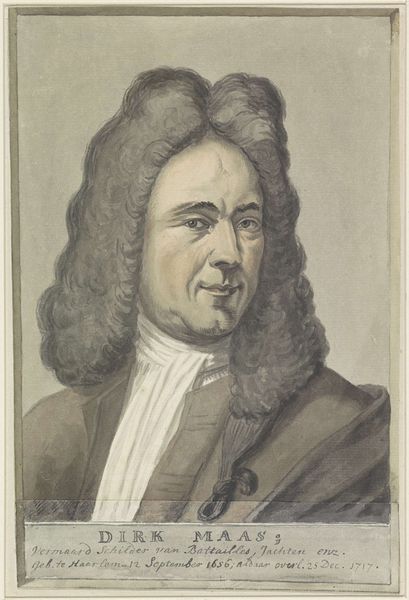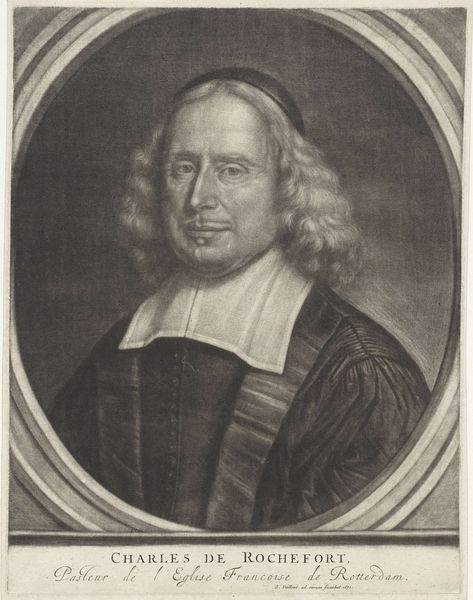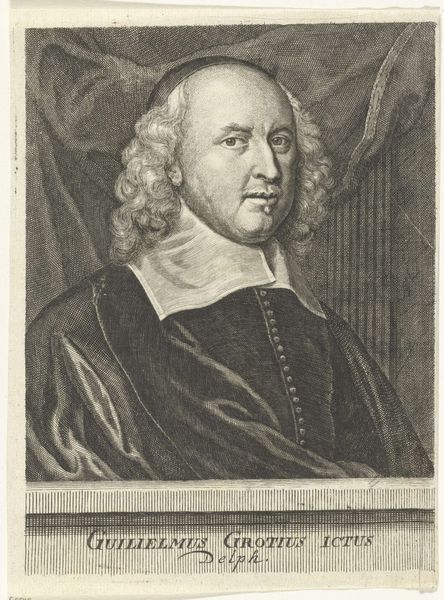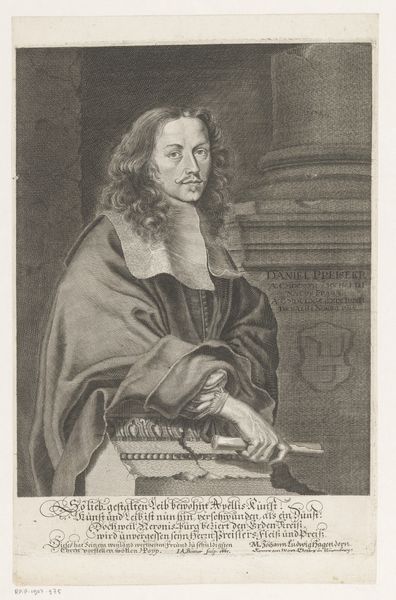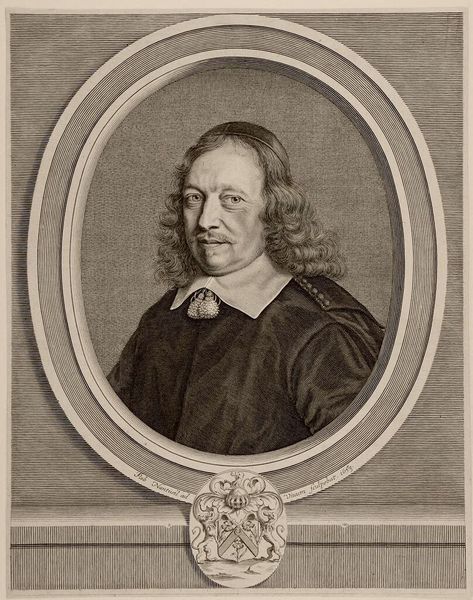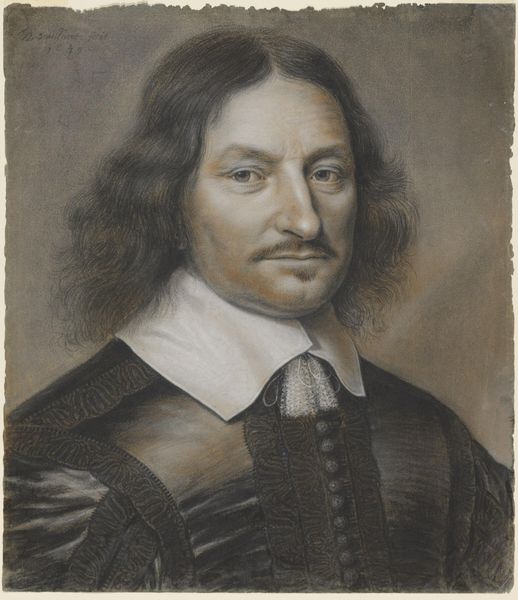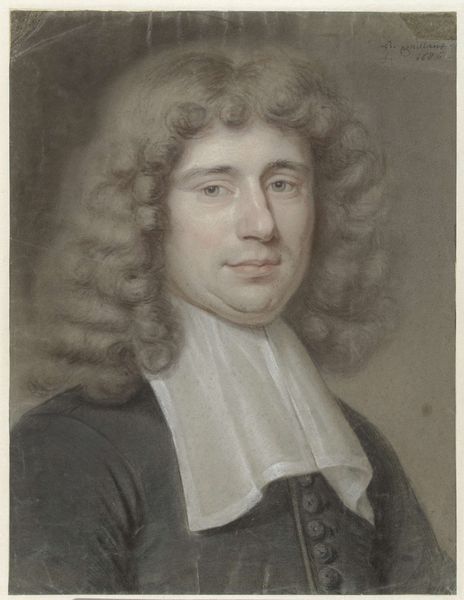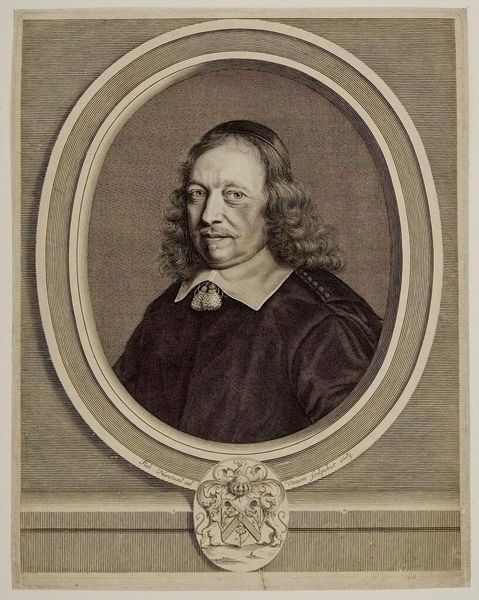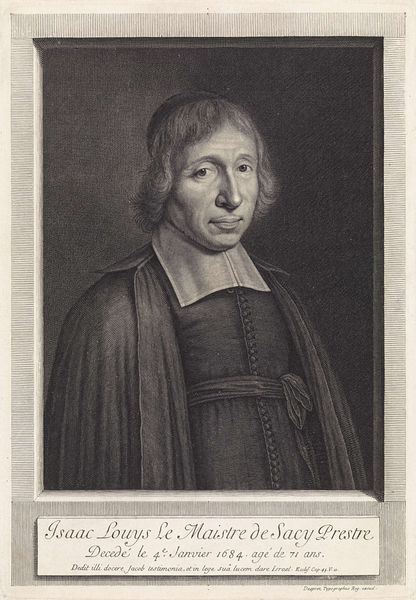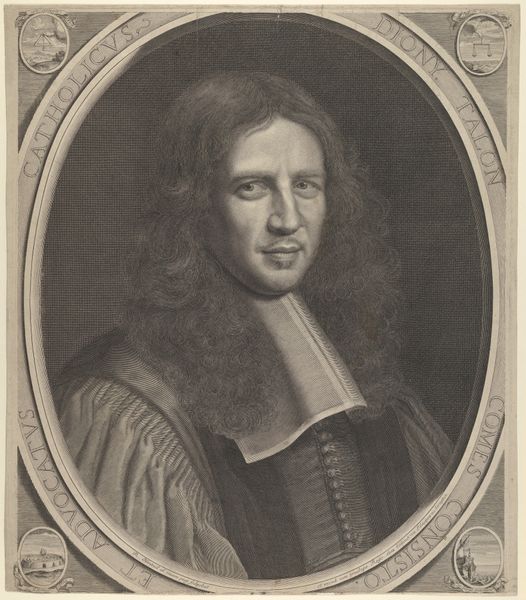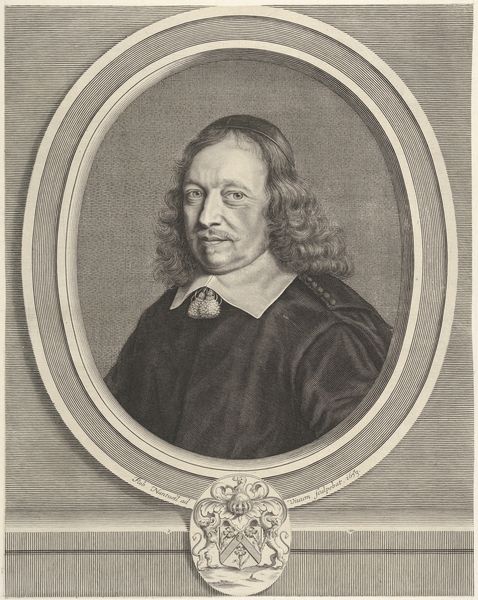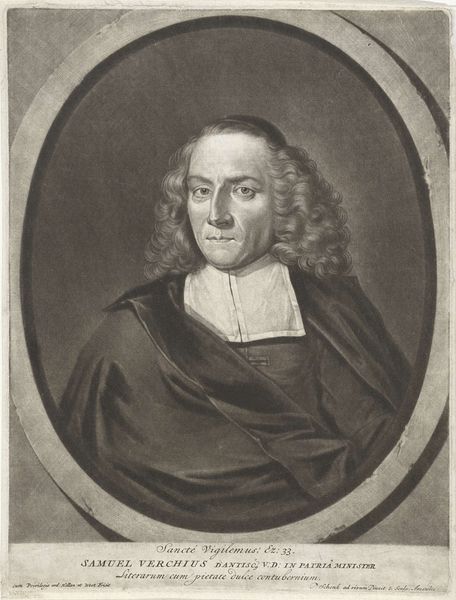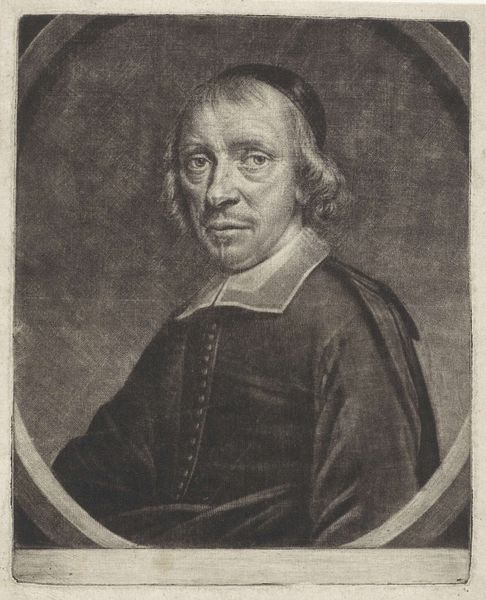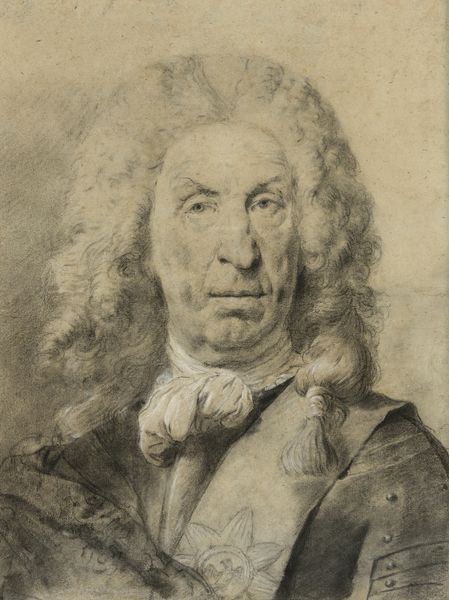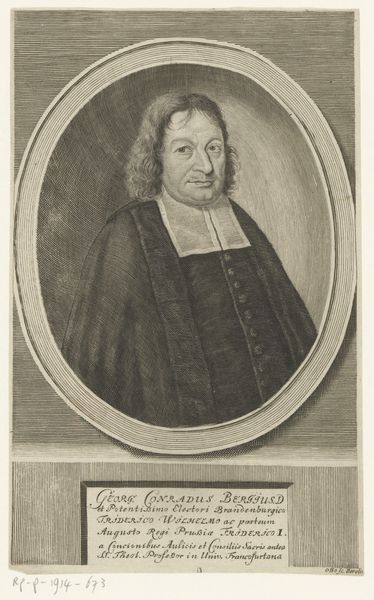
drawing, pencil
#
portrait
#
drawing
#
baroque
#
pencil
#
portrait drawing
#
facial portrait
Dimensions: height 428 mm, width 315 mm
Copyright: Rijks Museum: Open Domain
Editor: So this is "Portrait of Franz Egon Graf Fürstenberg," a pencil drawing by Bernard Vaillant, dating from sometime between 1665 and 1682. The detail is really impressive, especially around the face and collar. How do you interpret this work, particularly given the sitter's apparent status? Curator: Well, portraits like this weren’t just about capturing a likeness. They were very carefully constructed performances of power. Look at the sitter’s confident gaze, his elaborate collar. Think about who had access to art and representation during this period, and, just as crucially, who didn’t. Editor: Right, so the portrait is less about him as a person and more about his position in society? Curator: Precisely. This is the Baroque era, a period known for its emphasis on grandeur and display, so consider what role that played here. Every detail, from his hair to his clothing, speaks volumes about his identity. Think about the intended audience. How would this image function within his social circle, and for posterity? Editor: It's like he's curating his own image for future generations! Are there ways that we still perform our identities like this today, through social media or professional headshots? Curator: Absolutely. We're constantly engaging in similar acts of self-presentation, carefully constructing our identities based on our historical moment. Think about how power dynamics inform these processes. Editor: So this portrait becomes more than just art; it's a historical and social document. I'll never look at another portrait the same way! Curator: Indeed. Understanding these portraits within their social contexts helps us see the many complexities that art, history, and identity bring together.
Comments
No comments
Be the first to comment and join the conversation on the ultimate creative platform.
